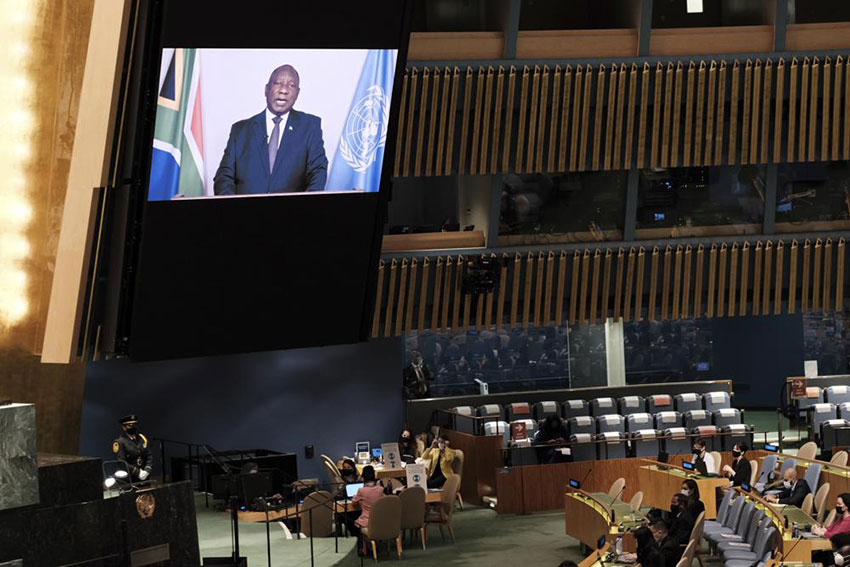The inequity of COVID-19 vaccine distribution came into sharp focus as many of the African countries whose populations have little to no access to the life-saving shots spoke at the U.N.’s annual meeting of world leaders. Some called for member states to relax intellectual property rights in order to expand vaccine production.
“No one is safe unless we are all safe,” was the common refrain.
“The virus doesn’t know continents, borders, even less nationalities or social statuses,” Chad’s president Mahamat Idriss Déby Itno, told the General Assembly. “The countries and regions that aren’t vaccinated will be a source of propagating and developing new variants of the virus. In this regard, we welcome the repeated appeals of the United Nations secretary general and the director general of the (World Health Organization) in favor of access to the vaccine for all. The salvation of humanity depends on it.”
The struggle to contain the coronavirus pandemic has featured prominently in leaders’ speeches – many of them delivered remotely exactly because of the virus. Country after country acknowledged the wide disparity in accessing the vaccine, painting a picture so bleak that a solution has at times seemed impossibly out of reach.

South Africa’s president Cyril Ramaphosa pointed to vaccines as “the greatest defense that humanity has against the ravages of this pandemic.”
“It is therefore a great concern that the global community has not sustained the principles of solidarity and cooperation in securing equitable access to COVID-19 vaccines,” he said. “It is an indictment on humanity that more than 82% of the world’s vaccine doses have been acquired by wealthy countries, while less than 1% has gone to low-income countries.”
He and others urged U.N. member states to support a proposal to temporarily waive certain intellectual property rights established by the World Trade Organization to allow more countries, particularly low- and middle-income countries, to produce COVID-19 vaccines.
Angola president João Lourenço said it was “shocking to see the disparity between some nations and others with respect to availability of vaccines.”
“These disparities allow for third doses to be given, in some cases, while, in other cases, as in Africa, the vast majority of the population has not even received the first dose,” Lourenço said.
The U.S., Britain, France, Germany and Israel are among the countries that have begun administering boosters or announced plans to do so.
Namibia president Hage Geingob called it “vaccine apartheid,” a notable reference given the country’s own experience with apartheid when neighboring South Africa’s white minority government controlled South West Africa, the name for Namibia before its independence in 1990.
During a global vaccination summit convened virtually on the sidelines of the General Assembly, President Joe Biden announced that the United States would double its purchase of Pfizer’s COVID-19 shots to share with the world to 1 billion doses, with the goal of vaccinating 70% of the global population within the next year.
The move comes as world leaders, aid groups and global health organizations have growing increasingly vocal about the slow pace of global vaccinations and the inequity of access to shots between residents of wealthier and poorer nations.
The WHO says only 15% of promised donations of vaccines – from rich countries that have access to large quantities of them – have been delivered. The U.N. health agency has said it wants countries to fulfill their dose-sharing pledges “immediately” and make shots available for programs that benefit poor countries and Africa in particular.